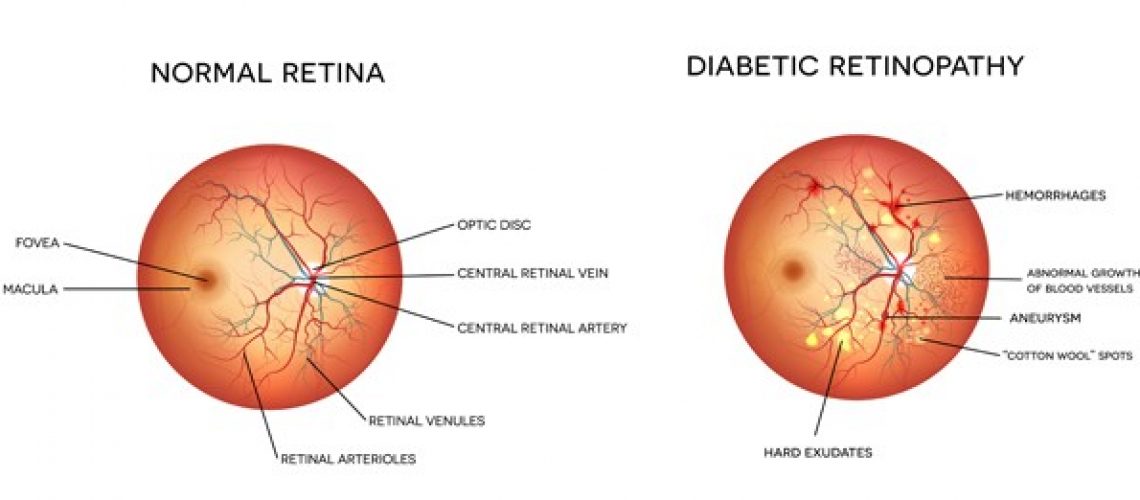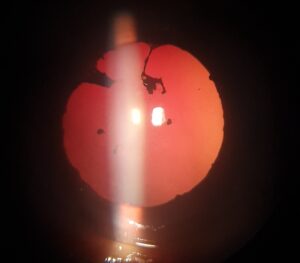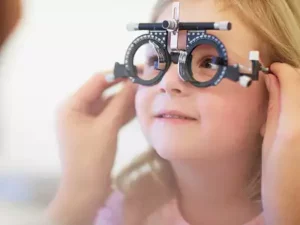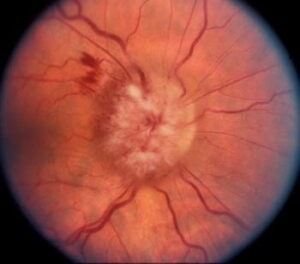It’s a condition that occurs in the eyes of people who’ve had diabetes for a long time. Especially if you are not in proper control of your blood glucose (sugar) levels.
Diabetic retinopathy produces internal bleeding in the eye, due to the damage that diabetes produces to the blood vessels of the retina.
The retina is an internal sensory tissue that lines the back of the eye. It is filled with nerve cells that detect light and send signals by electrical impulse, to the optic nerve and this to the brain. The retina has 10 interconnected layers divided into 3 sections, each with an essential purpose for the proper functioning of vision.
If the patient is not careful, diabetic retinopathy can cause irreversible vision damage or even blindness.
Diabetic retinopathy is divided into two stages: Non-proliferative and Proliferative.
Non-proliferative diabetic retinopathy: it is the early stage, when microaneurysms are seen in the retina, hemorrhage, edema, obstructed blood vessels, little oxygenation in the retina or macula.
Proliferative diabetic retinopathy: it’s the advanced stage, there is neovascularization in the retina, creation of abnormal and weak blood vessels, which can cause blood to leak into the eye.
All diabetics are at risk of developing diabetic retinopathy, glaucoma, cataract, retinal detachment, and macular edema.
Diabetic retinopathy can be silent but some symptoms are:
- Blurry vision
- Floaters in vision.
- See white or dark areas in vision.
- The colors look dull.
- Vision disturbances.
- Complete loss of vision.
- Poor vision at night
To diagnose it, the ophthalmologist must dilate the eyes and evaluate the fundus well. Dilation consists of applying a series of drops so that the pupil of the eye expands and we have a broader image of the retina.
Treatment depends on the stage you are in. It can be with laser or Avastin injections into the eye.
Visit your trusted ophthalmologist at least 2 times a year if you have diabetes. Early detection of diabetic retinopathy is important to preserve vision in the eyes.





